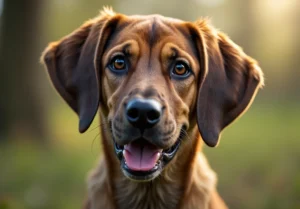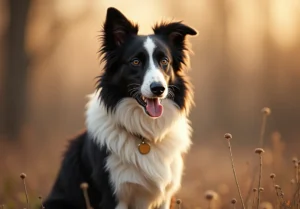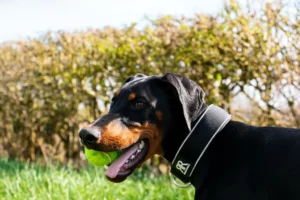Siberian Huskies are known for their striking appearance and sled-pulling prowess, but do these traits translate to being good hunting dogs? Let’s explore this intriguing question.
Dive into the fascinating world of Siberian Huskies as we examine their instincts, trainability, and physical traits, revealing the full picture of their hunting potential.
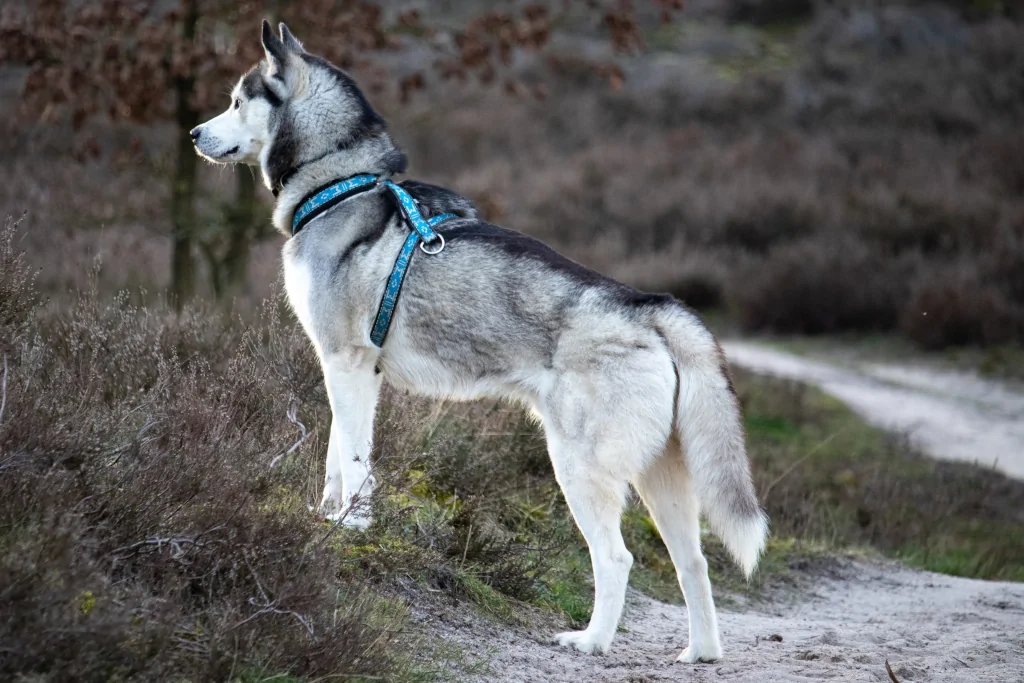
A Closer Look at Siberian Huskies’ Hunting Instincts
When examining Siberian Huskies’ hunting instincts, it’s essential to understand their origin and purpose.
Originally bred by the Chukchi people of Siberia, Huskies were primarily used as sled dogs, not hunters. However, they possess a natural prey drive, allowing them to chase and capture small game when necessary.
Their keen senses and high energy levels contribute to their hunting instincts, but these qualities alone don’t make them exceptional hunting dogs.
As we delve deeper into their characteristics and temperament, we’ll uncover the factors that influence their hunting capabilities.
Prey Drive and the Siberian Husky
Siberian Huskies possess a strong prey drive, which stems from their ancestral need to hunt small game for survival in the harsh Siberian environment.
This drive makes them eager chasers of small animals like squirrels, rabbits, and birds. While their prey drive can contribute to their potential as hunting dogs, it’s essential to remember that it’s just one piece of the puzzle.
Other factors, such as trainability and physical traits, play a crucial role in determining their overall suitability as hunting companions. For gopher hunting, for example, Terriers and Dachshunds are much better options, but Huskies may be trained to hunt as well.
Trainability: How Well Do Siberian Huskies Learn Hunting Skills?
Siberian Huskies are intelligent and independent dogs, which can make training both rewarding and challenging. When it comes to teaching them hunting skills, there are several aspects to consider:
- Early Socialization. Begin socializing your Husky puppy with various animals, environments, and situations to develop a well-rounded and adaptable dog. This foundation will make it easier to introduce them to hunting scenarios later on.
- Consistency and Patience. Siberian Huskies can be stubborn and independent, so it’s crucial to be consistent and patient during training. Use positive reinforcement techniques to keep them engaged and motivated to learn.
- Obedience Training. Establish a strong obedience foundation before moving on to hunting skills. Your Husky should reliably respond to commands like “sit,” “stay,” “come,” and “heel” before introducing more advanced hunting skills.
- Reinforcing Prey Drive. Tap into your Husky’s natural prey drive by incorporating exercises that encourage tracking, chasing, and retrieving. Use toys, scent trails, or mock prey to stimulate their interest and hone their abilities.
- Professional Assistance. If you’re new to training hunting dogs or find it challenging to train your Siberian Husky, consider enlisting the help of a professional dog trainer or attending a hunting dog training course.
While Siberian Huskies can learn hunting skills, their strong-willed nature and history as sled dogs mean they might not be the ideal choice for every hunter.
However, with dedication and proper training, you may be able to harness their innate prey drive and intelligence to make them suitable hunting companions.
Might be interested in: Dog Breeds and Deer Chasing
Physical Traits That Support Hunting Prowess
Siberian Huskies possess several physical traits that can support their hunting prowess.
Their muscular build, powerful legs, and thick double coat allow them to endure harsh weather conditions and navigate various terrains with ease.
Their keen senses, particularly their sharp eyesight and excellent hearing, can help them detect and track prey effectively.
Additionally, their incredible stamina and endurance, developed through their sled dog history, allow them to pursue prey for long distances without tiring. These traits make Huskies viable candidates for hunt training and similar activities.
Tips for Training a Siberian Husky as a Hunting Dog
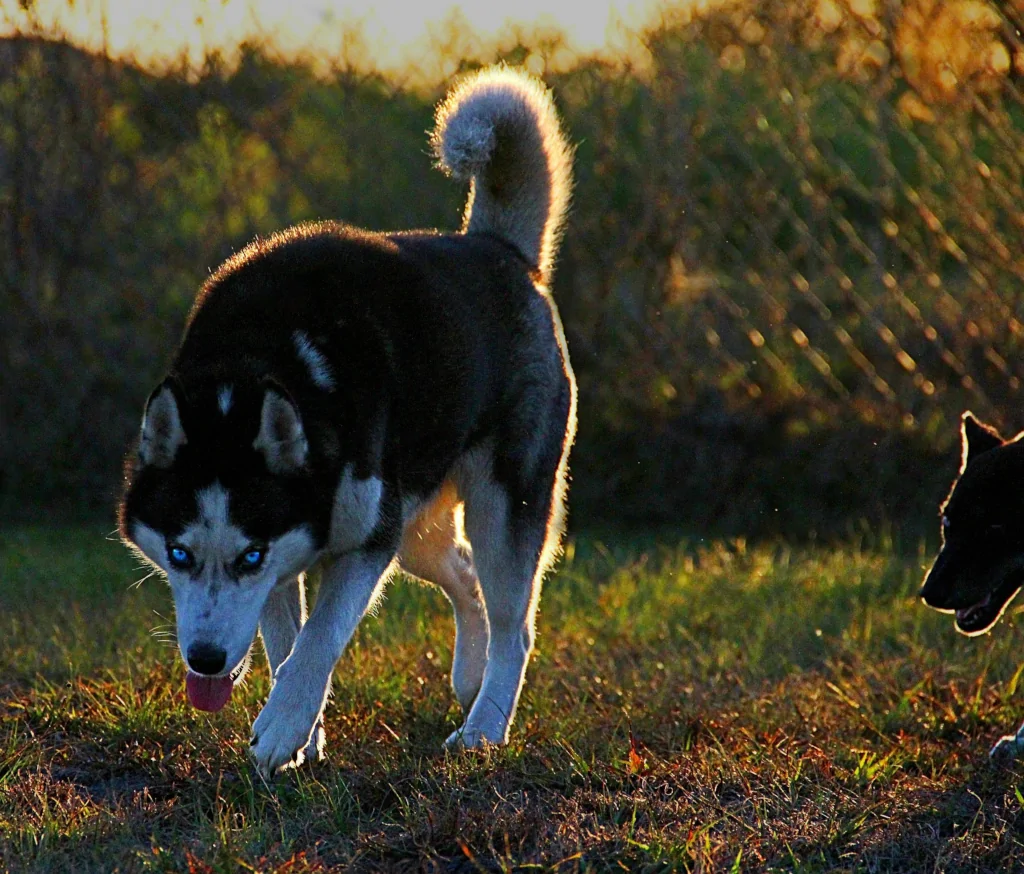
Preparing a Siberian Husky for hunting starts with establishing a solid groundwork in obedience and social interaction. First, focus on teaching essential commands such as “sit,” “stay,” “come,” and “heel.”
After your Husky has successfully learned these commands, progress to more specialized training specifically designed for hunting:
- Gradually introduce scent work. Begin by hiding treats or scented toys around your yard or training area. Encourage your Husky to use their nose to find these hidden objects, rewarding them when they successfully locate them. Over time, you can transition to using animal scents and creating scent trails for them to follow.
- Train with a long lead. When teaching your Siberian Husky to track and chase, start by using a long lead. This will allow you to maintain control while they learn the fundamentals of hunting, preventing them from chasing prey too far and becoming lost or injured.
- Teach “Whoa” or “Stop” command. Train your Husky to stop on command, which will be crucial for controlling their prey drive during a hunt. Use a consistent command, like “Whoa” or “Stop,” and practice in various environments and situations to reinforce their understanding.
- Utilize mock prey. Use realistic-looking mock prey, such as animal decoys or fur-covered toys, during training sessions. This will help your Siberian Husky become familiar with the appearance and scent of potential game, reinforcing their hunting instincts and skills.
- Practice retrieving exercises. Begin by having your Husky fetch toys or objects and gradually introduce retrieving exercises using mock prey or training dummies. Ensure that they understand the “Drop” or “Give” command to release the object when they return to you.
- Reinforce steadiness and focus. Train your Siberian Husky to remain calm and focused during a hunt by incorporating distractions, such as other dogs, people, or noises. Reward their steadiness and focus, ensuring they can maintain composure in various hunting scenarios.
- Socialize with other hunting dogs. If possible, arrange playdates or training sessions with other experienced hunting dogs. This will allow your Siberian Husky to observe and learn from other dogs, enhancing their hunting skills and etiquette.
- Be patient and consistent. Training a Siberian Husky for hunting requires time, patience, and consistency. Remember that every dog learns at their own pace, so adjust your expectations and training methods accordingly. Celebrate small victories and be persistent in your efforts to shape your Siberian Husky into a capable hunting companion.
Final Thoughts: Are Siberian Huskies Suitable Hunting Dogs?
While Siberian Huskies have certain traits that could make them suitable hunting dogs, their strong-willed nature and history as sled dogs might not make them the ideal choice for everyone.
If you’re dedicated to training and can harness their natural prey drive, intelligence, and physical abilities, they may prove to be effective hunting companions. However, for those looking for a more traditional hunting breed, other options, such as Labrador Retrievers or Pointers, might be a better fit.
FAQs
What types of game are best suited for Siberian Huskies?
Siberian Huskies are best suited for hunting small game, such as rabbits, squirrels, and birds, due to their strong prey drive and agility.
Can Siberian Huskies be trained for scent tracking?
Siberian Huskies can be trained for scent tracking, although they may not be as proficient as breeds specifically bred for this purpose, like Bloodhounds or Beagles.
How do Siberian Huskies compare to other hunting breeds?
Siberian Huskies have strong prey drive and physical stamina but may be more challenging to train compared to traditional hunting breeds like Labrador Retrievers or Pointers.
What age should I start training my Siberian Husky for hunting?
You may start training your Siberian Husky for hunting as early as possible, ideally between 8 to 12 weeks of age, focusing first on socialization and basic obedience before introducing hunting skills.
Alex, a passionate animal lover, has experience in training and understanding animal behavior. As a proud pet parent to two dogs and three cats, he founded AnimalReport.net to share insights from animal experts and expand his knowledge of the animal kingdom.

